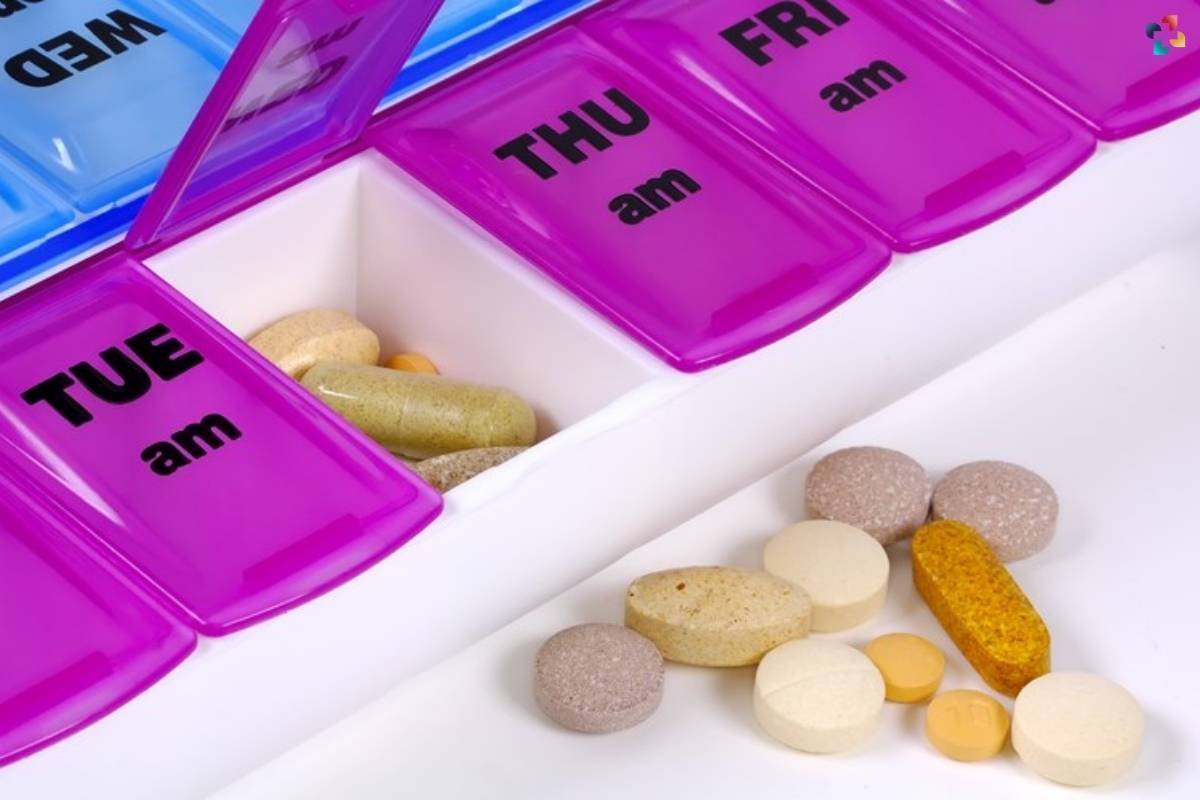Because of the cognitive and physical changes that come with aging, some individuals find it more difficult to control their pharmaceutical regimens. This may result in mistakes being made with medications, unpleasant drug reactions, and even hospitalization. It is necessary to provide assistance to elderly citizens in the efficient management of their drugs in order to preserve their health and well-being. In this piece, we will go over 10 different ways to assist how to help seniors to manage medications.
Here are 10 Steps to Help Seniors to Manage Medications:
Step 1: Identify the medications
The first thing to help seniors to manage medications that have to be done is to make a list of all the medicines that the elderly person is currently taking. These medicines may be either prescribed or over-the-counter medications, as well as vitamins and supplements. You may find out this information by questioning the senior, looking at the drug bottles, or speaking with the senior’s healthcare professional. When you have compiled an exhaustive list of drugs, it is imperative that you keep it up to date.
Step 2: Understand the medication regimen

When you have determined the prescriptions to be taken, it is really necessary to help seniors to manage medications and comprehend the medication schedule. You should be aware of the name of the drug, as well as its function, dose, frequency, and length of use. Also, it is crucial to be aware of the potential adverse effects of the prescription, as well as any drug interactions and storage requirements. You may get this information by visiting a healthcare practitioner or a pharmacist, reading the insert that comes with the medicine, or looking it up on the label of the medication.
Step 3: Organize medications
Keeping track of all of a senior’s prescriptions in a well-organized system will assist ensure that they are taken on time and as prescribed. You might use a pill organizer, which has compartments for each day of the week and each hour of the day. You also have the option of using a medication reminder app, which will send notifications to the mobile phone or other electronic device that the older citizen uses. There is also the option of utilizing a medication management service that will bring the older citizen’s pills already packed to their residence.
Step 4: Simplify the medication regimen
It may be challenging for older citizens to keep track of complicated drug schedules so it is your duty to help seniors to manage medications. You may make the treatment plan easier to follow by either decreasing the total number of drugs you take or combining treatments that can be administered at the same time. Instead, you might try switching to drugs that come in a once-daily dose or an extended-release formulation.
Step 5: Educate the senior
It is critical to provide elderly people with education on their drugs in order to enable them to appropriately manage their medications. You are able to describe the function of each medicine, the correct way to take it, and any potential adverse effects that may occur. You may also instruct kids on how to properly store prescriptions, as well as how to read the labels and inserts that come with pharmaceutical packages.
Step 6: Involve family members or caregivers
When it comes to assisting elders with the management of their medicine, family members and carers may play a significant role. They are able to speak with healthcare doctors or pharmacists, provide assistance in organizing prescriptions, and serve as a reminder for seniors to take their meds when you are going to help seniors to manage medications.

In order to provide the senior with the highest level of care possible, it is necessary to include members of the senior’s family or other caregivers in the process of medication management.
Step 7: Coordinate with healthcare providers
Help seniors to manage medications may benefit from assistance from healthcare professionals such as physicians, nurses, and pharmacists in managing their prescription regimens. They can advise on the appropriate doses, potential adverse effects, and drug interactions.
They are also able to prescribe prescriptions that are simpler to manage, as well as make any required adjustments to the pharmaceutical regimen. It is essential to maintain communication with one’s healthcare professionals about any changes or problems that may occur with one’s medication.
Step 8: Review medications regularly
Since drug schedules are subject to modification over time, it is critical to do medication reviews on a consistent basis. This may be accomplished by conferring with healthcare practitioners or pharmacists, both of whom are able to evaluate the senior’s pharmaceutical regimen in terms of its efficacy, safety, and adherence to the prescribed dosages.
Reviewing medications on a regular basis may help reduce the risk of making prescription mistakes and experiencing harmful drug reactions.
Step 9: Address medication non-adherence
Non-adherence to medication regimens is a major issue faced by elderly people. You may address non-adherence by determining why the elderly person is not taking their prescriptions, such as forgetfulness or the negative effects of the drug they are taking.

The next step is to devise methods for overcoming these obstacles, such as downloading an app that will remind you to take your medicine or switching to a different drug. It is essential to deal with medication non-adherence in order to make certain that the elderly person reaps the full benefits of the drugs they are taking.
Step 10: Monitor
It is crucial to check the senior’s medication usage on a consistent basis to ensure that they are taking their prescriptions in accordance with the directions that were given to them. You may accomplish this in a few different ways: by seeing the seniors take their prescriptions, by checking their medication organizer or reminder app, or by simply questioning them about their medication usage.
You also have the option of adopting a medication adherence monitoring device, which offers information in real-time on the older citizen’s use of medicine. The early detection of prescription non-adherence by monitoring may assist in the prevention of adverse pharmacological effects.
BOTTOM LINE
The proper administration of medicine might be difficult for older citizens, but it is very necessary for the preservation of their health and well-being. If you follow these 10 steps, you will be able to help seniors to manage medications and prevent medication mistakes as well as adverse drug events.
In order to provide the senior with the highest level of care possible, it is critical to include family members, other caregivers, and healthcare professionals in the drug management process. when you are going to help seniors to manage medications make sure that the elderly person is getting the most out of their meds, you should make it a habit to evaluate their prescriptions on a regular basis and handle any issues with medication non-adherence.









